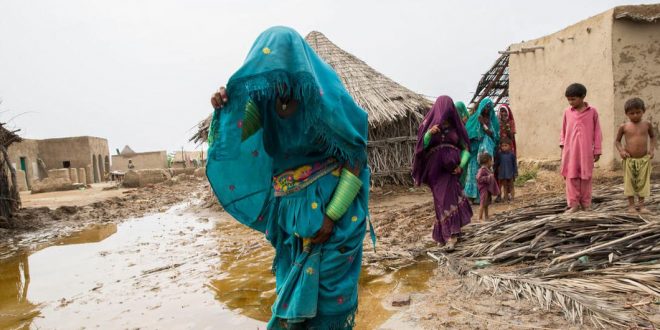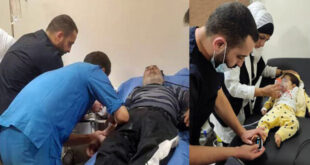Islamabad, SANA-Major health risks are unfolding in Pakistan as unprecedented flooding continues, the World Health Organization (WHO) reported on Wednesday, warning of the threat of further spread of malaria, dengue fever and other water- and vector-borne diseases.
Chief Tedros Adhanom Ghebreyesus said the UN agency has classified the situation as a grade 3 emergency – the highest level of its internal grading system – which means all three levels of the organization are involved in the response: the country and regional offices, and headquarters.
“Floods in Pakistan, drought and famine in the Greater Horn of Africa, and more frequent and intense cyclones in the Pacific and Caribbean all point to the urgent need for action against the existential threat of climate change,” he said, speaking during his regular briefing from WHO headquarters in Geneva.
Millions affected
More than 33 million people in Pakistan, and three-quarters of all districts, have been affected by the flooding, which was brought on by monsoon rains.
At least 1,000 people have been killed and 1,500 injured, WHO said, citing national health authorities. More than 161,000 others are now in camps.
Nearly 900 health facilities across the country have been damaged, of which 180 are completely damaged. Millions have been left without access to health care and medical treatment.
The Government has declared a state of emergency, and the UN has launched a $160 million appeal for the country. Tedros also released $10 million from a WHO emergency fund to support the response.
Flooding could worsen
With the floods projected to worsen over the coming days, WHO is immediately focused on these priorities.
Pakistan’s Government is leading the national response and is establishing control rooms and medical camps at the provincial and district level.
The authorities also are organizing air evacuation operations, and conducting health awareness sessions on waterborne and vector-borne diseases, as well as other infectious disease such as COVID-19.
WHO is working closing with the health ministry to increase surveillance for acute watery diarrhoea, cholera, and other communicable diseases to avoid further spread. The agency is also providing essential medicines and medical supplies to functional health facilities treating affected communities.
UN News Website
Mazen Eyon
 Syrian Arab News Agency S A N A
Syrian Arab News Agency S A N A

